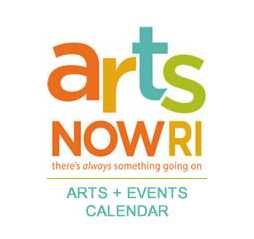OPINION

Ziggy Marley said, “I was born by myself but carry the spirit and blood of my father, mother and my ancestors. So I am really never alone. My identity is through that line.”
Identity is important because it helps one know who they are and helps shape who they will become. Having an identity is important for people and it is also important for communities.
Growing up in Manchester, it always felt like the city was running away from its past; that it didn’t want to embrace its identity. In school we learned about the great industrial history of the city – the hard work that went into establishing our town as well as the unbreakable will of the people to keep Manchester alive after Amoskeag Manufacturing closed its doors back in December of 1935. (Although cloth was woven in Manchester – on a much smaller and decreasing scale – until March of 1975, it was a company town, designed and built for the mills, and the closure of Amoskeag crippled the small city).

In addition, the closure happened during the Great Depression and would soon be followed by the devastating flood of 1936 and hurricane of 1938, which further devastated the already hurting city. Manchester should have died. It would not at all be surprising if the once great city, a leader during the industrial revolution and once the largest manufacturer of cotton cloth in the world, became nothing more than a shell of its former self. After all, Manchester was Amoskeag, and in fact the company was so powerful that it played a large role in city planning and could stop other manufacturing companies from locating there. The company that defined Manchester was dead, and the city should have gone to the grave with it.
We also learned of the Amoskeag (originally Blodget) Canal and how the local industrial visionary Samuel Blodget created it as well as the lock system to allow boats and barges to navigate the Merrimack River around the falls. This opened a trade route between Boston, MA, and Concord, NH, and made it possible for the mills to open. (The canal was part of Blodget’s vision to turn the then town of Derryfield into the “Manchester of America.” This town was later renamed Manchester in honor of Blodget).
But the city that should have died along with Amoskeag survived. It survived because of the resiliency of the people who remembered how hard it was to get the city going and knew that together they could pull the city from the ashes and make it whole again. It would take a lot of time and hard work, but it could be done.
This is what I think of when thinking about my hometown. My thoughts are of a city that wouldn’t die; one that wouldn’t go down in history as a once great city that is no more. This is why I am proud to be from Manchester. I am from a city that wouldn’t die. I’m a Westside boy from “ManchVegas.”
Maybe this is why it is so frustrating to me that the city has always seemed to run away from its history. We learn about the city’s past and it is nicely written on tourism brochures and sites, but it has never been embraced and the city has lost its identity.
Related story: ‘10,000 AARP Sweetpstakes winner: It’s a sign from the heavens‘
I remember one of the most common things that we were told growing up in response to questions regarding things like lack of nightlife or good public transit. We used to be told that Manchester is a “bedroom community of Boston.” That was the reasoning for everything that we saw as “in need of improvement” or in response to any ideas that were seen as making the city “too big.” The other thing we used to hear a lot is that people didn’t want Manchester to “be another Boston.” That statement in itself told me that Manchester didn’t have a true identity so there was the fear of “becoming” another city. The fact is that no city should try to be another; each community should embrace its own identity.
It doesn’t seem that Manchester embraces an identity, which may be because it no longer has one. Manchester is not a bedroom community of Boston. The city is about 50 minutes north of Boston – in a different state and “sub-region” (northern New England versus southern New England).
The city needs its own identity and not ride the coattails of another, especially one that is almost an hour away. Many people refer to Boston as the unofficial capital of New England, but that doesn’t mean that every city in the region has the same identity as Boston does.

For example, Providence is about 50 minutes south of Boston, also in a different state but same sub-region, (southern New England). But Providence has its own identity and has successfully branded it. Providence is known as the “Creative Capital,” which helps promote the arts and culinary treasures in the city as well as colleges like the Rhode Island School of Design, (RISD), and Johnson & Wales University, known for their arts and culinary educations, respectively. Providence was once known for its manufacturing and jewelry, and after both industries declined focused on the arts and on culinary. The city honors its history and embraces its identity and does not depend on that of Boston.
Providence is its own city.
In order for Manchester to move forward, it needs to honor its history (not just hide or destroy it, which is another problem and may be a topic of a future post) and it needs to figure out its identity and embrace it so that it can brand itself as its own city and not as a “bedroom community” or extended suburb of Boston.
Manchester has made some attempts at “identifying” itself over the years through slogans, including the current one: “New Hampshire’s Business Capital.” There has also been “The Birthplace of Your American Dream.” Neither of these slogans truly represents the city in my opinion because there is so much more to Manchester than the businesses. I’m sure that there have been others, but nothing really lasted long enough to make an impression.
Manchester needs to figure out its identity and stop considering itself a suburb of Boston. Manchester needs to stand on its own so it can move forward. Manchester is its own city and should tell the world!
Maybe Manchester residents and business owners need to get together and work at figuring out the city’s identity – an identity that is purely Manchester – one that honors our history and embraces who we are. Manchester needs an identity that it can embrace as the city moves forward.

For the Love of Manchester posts will cover a range of topics with a focus on the author’s vision of Manchester becoming a more vibrant, people-friendly, and economically stable city that honors its history and embraces its identity while building for the future. He believes that anything can be accomplished if people are open to new and different ideas and work together towards a common goal.
About the author: Brian Chicoine is a New Hampshire native who moved to Manchester from Raymond in 1980 at the age of 8. He attended Gossler Park Elementary, Parkside and Southside Junior High, and West High, from which he graduated in 1990. After attending Notre Dame College in Manchester, Brian completed his undergraduate degree at Rhode Island College in Providence. Brian and his wife Jackie then came to Manchester in 2004 and were involved in various outreach organizations. Their two boys were born in Manchester during this time. After his position was eliminated in 2009, Brian and his family returned to Rhode Island. They have been living in Providence since 2010. Brian and his family love Manchester and are planning on returning within the next few months. Brian is currently working at helping the city move forward by connecting with other stakeholders and becoming involved with like-minded groups. Brian is also laying the foundation for an organization that will help strengthen the city and help it move forward.
Brian holds a Bachelor’s degree from Rhode Island College and a Master of Public Administration degree from Grand Canyon University. Brian currently works at Boston Children’s Hospital. He is also founder of a Facebook Group, Manchester Forward. You can contact him at brian.chicoine1636@gmail.com.
 You’re one click away! Sign up for our free eNewsletter and never miss another thing
You’re one click away! Sign up for our free eNewsletter and never miss another thing







